A healthy pregnancy needs a healthy body, and the best way to achieve this is by making sure you’re eating well. Ideally, you should start putting healthy habits into practice as soon as you start planning to become pregnant.
It’s during the time leading to conception and over the first three months of pregnancy that your baby stands to benefit most from your eating a healthy diet. But it’s never too late to start eating well, and you and your baby will feel the benefits no matter where you are in your pregnancy.
Nutrients for pregnancy
As always, it is important to include a variety of foods each day to ensure that you get all the nutrients that you and your baby need. If you follow general healthy eating guidelines, you should not be short of any of the essential nutrients you need for pregnancy.
You should take particular care to ensure you are consuming enough of the following nutrients, as these will be of particular importance to you during pregnancy:
- Folic acid
- Calcium
- Iron
- Vitamin D
- Vitamin B12
- Fish Oils
You should try to include each of these nutrients as part of your healthy eating habits. With the exception of folic acid, there are no proven benefits associated with taking vitamin or mineral supplements.
Eating for two?
When you’re pregnant, your body becomes more efficient at using the energy you obtain from the food you eat. Because of this, the average woman does not need any extra calories for the first six months of pregnancy, and only about 200 extra calories per day for the last three months.
Your appetite is the best indication of how much food you need, and you may find it fluctuating throughout the course of your pregnancy. The best rule to follow is eat when you feel hungry. There’s no need to worry about your changing appetite, and your midwife will monitor that you are gaining weight at an appropriate rate.
A normal weight gain for most women is 11 – 15kg, but this may vary based on age, height, the weight you were when you became pregnant, and whether this is your first baby. Generally, women having their first baby gain more weight than those having their second or subsequent babies.
Other lifestyle considerations
Maintaining a healthy diet is just one facet of a healthy lifestyle. In order to improve your chances of a healthy pregnancy and healthy baby, you should consider the following:
- Limiting caffeine intake
- Ceasing alcohol consumption
- Quitting smoking
- Maintaining regular exercise
- Discussing all medications you take with your GP, obstetrician or midwife
Your Hatch Private Maternity midwife can provide you with guidance relating to healthy diet and lifestyle choices for pregnancy. If you are yet to meet with one of our midwives, you can book a free, no-obligation initial consultation today to see if Hatch may be right for you. Simply call us on (07) 3332 1950, or request an appointment online.
